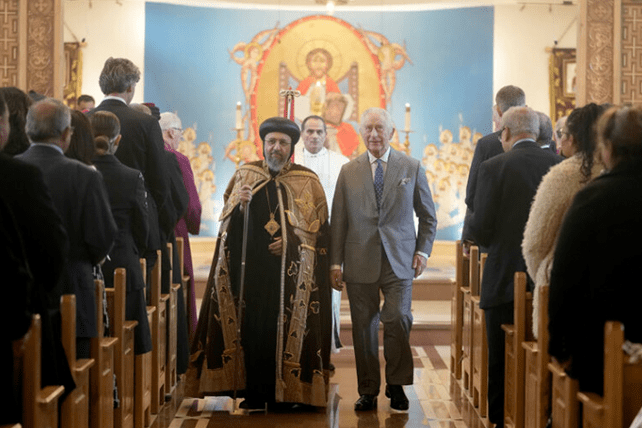LONDON (RNS) — Advent is the season when the Church of England usually runs a campaign to get more people into church, and this year is no exception. “Follow The Star: Join The Song” is a drive to get more people singing, and a new melody for a traditional carol, “The First Nowell,” by one of Britain’s most acclaimed choral composers, Bob Chilcott, has been specially written for the campaign. But this Advent is going to be remembered for a different first. This Sunday (Dec. 17), the third Sunday in Advent, the Church of England will launch its prayers of blessing for same-sex couples.
Called Prayers of Love and Faith, they are the result of seven years of discussion within the Church of England about what its pastoral response to same-sex relationships should be. But the blessing may be too little too late for an institution that has been declining in attendance and support for decades. A bill seeking to “disestablish” the Church of England was presented to the House of Lords last week that, while it has little chance of passing, signals a growing discomfort with the relationship between church and state in the country. A major reason is the church’s stance on same-sex marriage, which stands in contrast to the law of the land and has long alienated politicians and peers.
According to Malcolm Brown, the Church of England’s director of mission and public affairs, the bill is a way of gauging what the church’s critics think.
“We feel rather beleaguered over same-sex issues,” said Brown. “A lot of people in Parliament feel we should be brought into line on same-sex marriage.”
Same-sex marriage has been legal in England and Wales for almost 10 years, but the amendments to the 2010 Equality Act that paved the way for legalizing same-sex marriage also ensured a get-out clause for the Church of England so that its canon law would not be affected.
Just how fraught the issue has been for the national Church of England is highlighted by the bishops’ announcement that they will consider a pastoral provision to protect the conscience of those who wish to use the new Prayers of Love and Faith blessing — and of those who do not. One group within the Church of England, calling itself the Alliance, representing evangelicals, has now urged a delay to use of the prayers, saying they are “a departure from the doctrine to which the Church of England has always held fast.”
But last week’s bill — presented in the House of Lords, the upper chamber of British Parliament — is an indication of how the issue has affected the church’s reputation in a country that is both rapidly secularizing and becoming more religiously pluralistic.
It was presented by the Liberal Democrat peer Paul Scriven, who said: “The separation of Church of England and State is long overdue. We need to reflect Great Britain as it is today, not as it was in the 1500s,” in a reference to the creation of the Church of England by Henry VIII when he broke away from the Roman Catholic Church.
“In a modern, pluralistic, and secular society, it is a rather archaic and unjustifiable religious privilege at the heart of our constitution to be implanted at the very heart of the organization and management of the State,” Lord Scriven wrote in an article for National Secular Society.
The bill is designed to separate Church and State by removing the Church’s privileged, established status, the automatic right of bishops to sit in the House of Lords and the monarch’s role as Supreme Governor of the Church of England — a role recently highlighted when King Charles III was crowned in an Anglican coronation ceremony in May.
Although the bill has little chance of becoming law — it was not presented by the government, so it will be difficult to timetable debate — it does indicate a certain dissatisfaction with the established Church, and so has been noted with concern by its senior officials and bishops.
Brown does not think that the launch of Prayers of Love and Faith this Sunday will change opinion. “They will probably not be enough for those for whom identical treatment of LGBTQ people is an article of faith,” he said.

